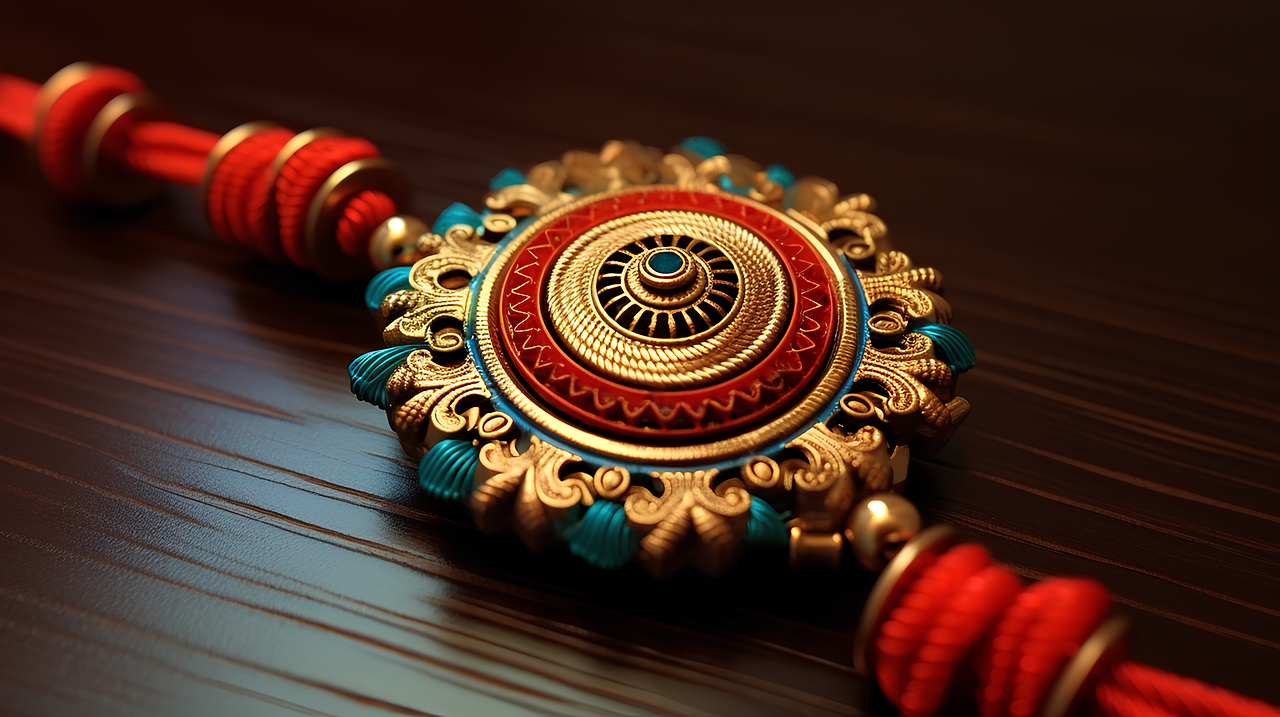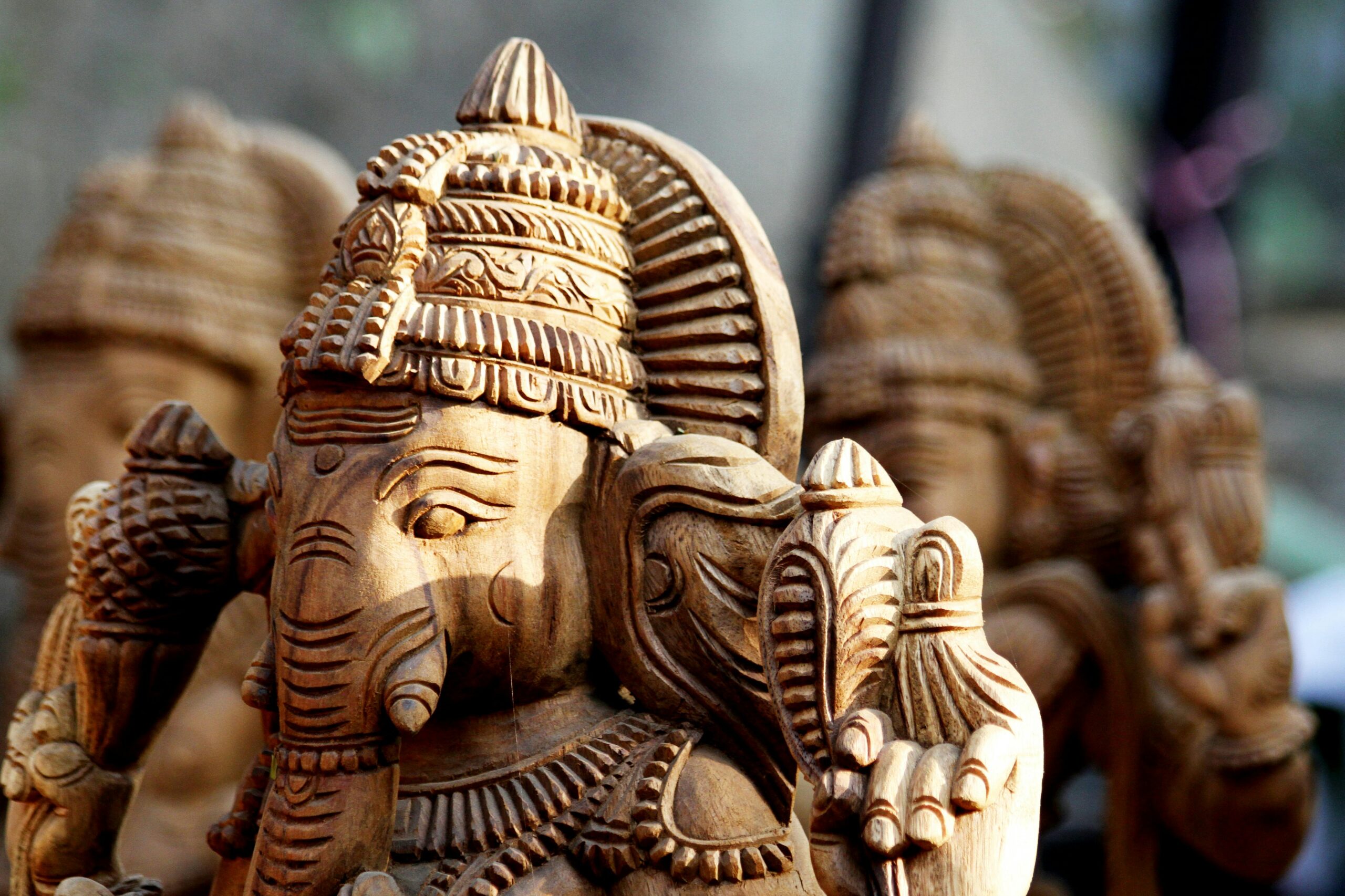“Rakshabandhan: Celebrating the Timeless Bond of Protection and Love”

Rakshabandhan ‘s origin
Rakshabandhan, also known as Rakhi, is a significant Hindu festival celebrating the bond between brothers and sisters. The name “Rakshabandhan” translates to “the bond of protection,” highlighting the festival’s core theme.
The origins of Rakshabandhan are deeply rooted in Hindu mythology. One popular legend tells of a significant event from ancient times involving King Bali and the goddess Lakshmi. According to this story, when King Bali was granted the boon of visiting his kingdom once a year, the goddess Lakshmi tied a rakhi around his wrist to protect him. In return, King Bali promised to visit her kingdom annually, symbolizing protection and affection.
Another well-known mythological story is about the bond between Lord Krishna and Draupadi. During the great war of Mahabharata, Draupadi tied a rakhi on Krishna’s wrist to save him from danger, and Krishna, in turn, promised to protect her. This story underscores the mutual respect and commitment that the festival represents.
Why We Celebrate Rakshabandhan
- Celebrating Sibling Bond: Rakshabandhan celebrates the unique bond between brothers and sisters. On this day, sisters tie a rakhi (a sacred thread) around their brothers’ wrists, symbolizing their love and prayers for their well-being. In return, brothers pledge to protect their sisters and honor their commitment.
- Expressing Love and Care: The festival is an opportunity for siblings to express their love and care for one another. The rakhi, often adorned with intricate designs and colorful threads, serves as a token of this affection and the promise of protection.
- Strengthening Family Ties: Rakshabandhan fosters familial bonds and strengthens relationships. Families come together to celebrate, often sharing meals and exchanging gifts, which enhances family unity and togetherness.
- Cultural and Social Significance: Beyond the personal bond, Rakshabandhan also has cultural and social significance. It reflects the values of duty, protection, and respect, which are integral to Hindu traditions. The festival also serves as a reminder of the importance of mutual support and commitment within families and communities.
Things we will need for celebrating Rakshabandhan
- Rakhi: The sacred thread tied by sisters on their brothers’ wrists.
- Puja Thali: A decorated plate to hold all the pooja items.
- Roli and Chawal: Red powder (kumkum) and rice grains for tilak.
- Diya: A small oil lamp for the aarti.
- Incense Sticks: For creating a spiritual ambiance.
- Sandalwood Paste: Used for the tilak ritual.
- Flowers: For offering during the pooja.
Gifts and Sweets:
- Sweets (Mithai): Traditional Indian sweets like ladoos, barfis, and chocolates.
- Dry Fruits: Almonds, cashews, raisins, etc.
- Gift Hampers: Custom-made hampers with chocolates, sweets, and other goodies.
- Personalized Gifts: Custom gifts like mugs, photo frames, and keychains.
- Cash or Gift Vouchers: Monetary gifts for brothers or sisters.
Decoration and Other Items:
- Decorative Items: Rangoli colors, flower garlands, and torans for home decoration.
- New Clothes: Traditional attire like sarees, kurtas, or dresses for the occasion.
- Greeting Cards: Personalized Rakhi cards with heartfelt messages.
Additional Items:
- Pooja Bell: To ring during the aarti.
- Holy Water (Ganga Jal): Used for purifying and sprinkling.
- Sweets Boxes: For packaging and distributing sweets.
- Aarti Book or Mantra Book: For chanting and performing the rituals correctly.
SO WE ARE HERE TO HELP YOU OUT VISIT THE SHOP OR CONTACT US
We Are Here to Help You Out
Celebrate Rakshabandhan with all the essentials you need. Visit our shop or contact us for personalized assistance in selecting the perfect items for your festivities.
Visit Our SHOP
Modern Celebrations
In contemporary times, Rakshabandhan has evolved to include not just biological siblings but also close friends and relatives. The festival often involves elaborate preparations, including the exchange of gifts, sweets, and special rituals. Public and community celebrations also add to the festive spirit, reflecting the festival’s growing significance in modern society.
 sister ties a rakhi and in return, the brother gives them gifts
sister ties a rakhi and in return, the brother gives them gifts
Conclusion
Rakshabandhan is more than just a celebration of the sibling bond; it is a festival emphasizing protection, love, and familial unity. Through its rich history and enduring traditions, Rakshabandhan holds a special place in the hearts of many, symbolizing the values of care and commitment that transcend time.
READ LORD GANESHA ‘S BLOG

0 Comments